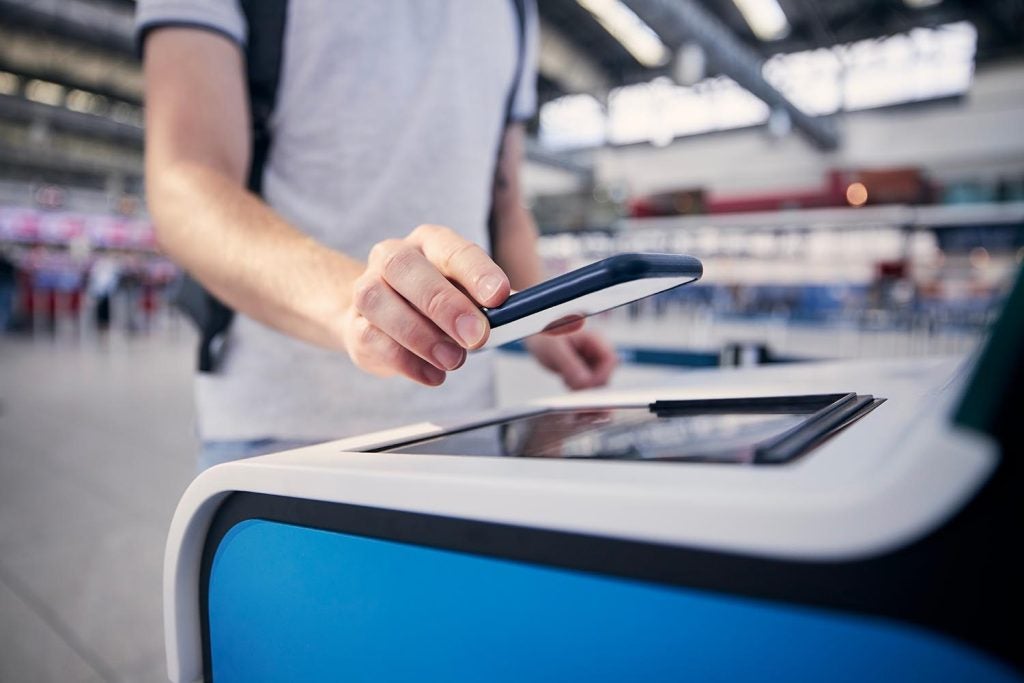
Airlines use IT systems for baggage management, reservation systems, tracking fuel efficiency, and pilot scheduling. Now, US-based software company Inflectra offers mobile app testing tools in order to ensure apps are built to sustain these systems.
The company was founded 16 years ago in response to a gap in the market for software products to help people manage testing.
Inflectra helps app developers ensure updates are well-structured and avoid disruption. There are expectations for airlines to provide users with a digital experience, but regulations can sometimes prove to be an obstacle in pursuing an accelerated change towards mobile app interfaces.
The US tech company considers various unique aspects of testing and developing software for the aviation industry, including precision and timing requirements and health and public safety considerations.
Time-consuming testing for aviation apps
Aviation software is regulated through the Software Considerations in Airborne Systems and Equipment Certification (DO-178B) in the US. The FAA uses this to determine the reliability of the software.
“We see various aspects of the industry and one of the common trends has always been that testing is slow and difficult due to rules and regulations and demand for aviation products. In the software industry, by comparison, social media apps can be built, tested, and released quickly,” says Adam Sandman, founder and CEO of Inflectra
How well do you really know your competitors?
Access the most comprehensive Company Profiles on the market, powered by GlobalData. Save hours of research. Gain competitive edge.

Thank you!
Your download email will arrive shortly
Not ready to buy yet? Download a free sample
We are confident about the unique quality of our Company Profiles. However, we want you to make the most beneficial decision for your business, so we offer a free sample that you can download by submitting the below form
By GlobalData“It’s not that it’s hard to build a new functionality, it is that the testing is so time-consuming that it is difficult to prioritise modernising for air traffic control systems because of the complexity of compliance.”
Inflectra has various products available to the aviation industry in pursuit of the mobile app interface. SpiraTest is one of the solutions, which manages requirements, tests, and bugs.
We have seen customers where the platform they have is a 30 or 40-year-old mainframe and has not been tested.
In terms of the aviation industry, this software testing along with mobile app interfaces can help to encourage modernisation.
“We have seen customers where the platform they have is a 30 or 40-year-old mainframe and has not been tested. If they want to build a new functionality to change how something is done they have to test the entire system again so they tend to want to make small changes,” says Sandman.
“In aviation, knowing that you have to qualify the system you are building or testing, the tools being used themselves have to be tested to the same standard. There is a need to test the testing tools that are used to test the onboard system.”
Contactless applications on the rise
The Covid-19 pandemic influenced attitudes towards the connection between technology and efficiency. The response to Covid-19 encouraged the use of contactless technology in various aspects, including the aviation industry.
Within the aviation sector, there was a focus on end-user experience, as almost all passengers have access to a mobile app that allows them to check into a flight. In addition, mobile interfaces have made it more efficient to complete immigration paperwork, for example for travel into Australia.
Sandman notes that it is simple to test whether a QR code or button works as intended, but it is harder to test facial recognition tools or tools that can identify a passport that is being scanned.

But apps are becoming more sophisticated as testing improves, and testing complicated apps is important to avoid disruption. For example, if check-in options were faulty this would cause long delays and queues.
“There are a lot of new opportunities for the aviation industry to innovate, and regulators are more open to it. Mobile testing has existed for a long time. I think that testing facial recognition, passports, and immigration document scanning can now be tested in an automated way that it couldn’t two or three years ago,” explains Sandman.
“There are testing apps for a wider range of use cases. You can have a computer system that can test at a scale and find flaws in apps that exist. Technology is opening up a lot of doors for aviation to cut costs, simplify electronics and simplify the human side.”



